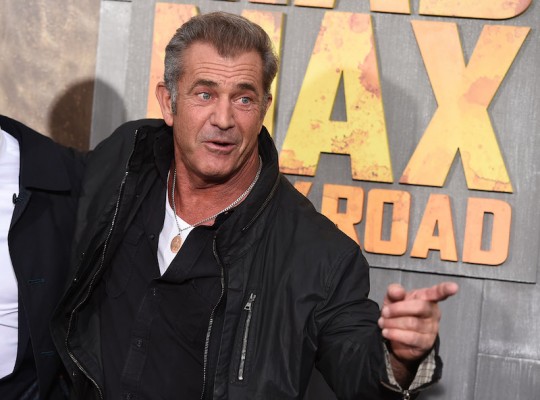There are a pair of complementary pieces running on ideologically opposite sites today about who we choose to forgive and why: The Federalist highlights the entertainment industry's seeming inability to forgive Mel Gibson while the New Republic asks "Why won't Twitter forgive Suey Park." Gibson, you may remember, had a whole series of problems in the mid-to-late oughts—most famous was the time he called a female police officer "sugar tits" and suggested that the Jews are to blame for the world's problems, but then there was that whole, weird, possibly-physically-abusive-toward-his-girlfriend thing—while Park is most famous for the #CancelColbert campaign, during which she attempted to whip up an outrage mob to get someone fired for making a (not at all) racist joke that Park thought was racist.
Here's Mark Hemingway on Gibson and Robert Downey Jr.:
That was, again, more than three years ago, and despite Downey’s impassioned plea, Gibson is still persona non grata in Hollywood. But Downey hasn’t let up trying to revive a fellow addict’s career. He’s now saying the only way he’ll do another Iron Man movie is if Gibson is allowed to direct it. Of course, there’s always a chance Gibson really is a monster. But I choose to take Downey’s word that it’s time to forgive, because I’d rather live in a society where we err on the side of too much forgiveness than not enough.
And here's Elizabeth Stoker Bruenig on Park:
Alas, the Internet has not forgiven Suey Park. A quick online search finds that the #CancelColbert hashtag still riles a certain kind of online misanthrope, even today. It has been cited as evidence of the censoriousness of "social justice warriors" (a pejorative term that nods to the superficiality of online social activism); as proof, in the words of one @sherlocklestat, that "feminism poisons EVERYTHING"; and as substantiation, according to another Twitter malcontent, of Park’s alleged racism against white people ("Count # times @suey_park says ‘white liberals’ in this video & ask who has an agenda and who is racist"). ...
The Internet is not a mindless shame-randomizer, but a multitude of different hordes, each with its own interests. If a person’s reputation is perpetually tied to one thought or remark, it is likely thanks to the efforts of a specific group of people who tweet, retweet, blog, reblog, tag, retag, and otherwise create the terms on which a person will be understood, whether or not he or she likes it, whether or not they have changed. It really is like high school forever: Try to think of something worse.
Why is it that we can forgive all manner of celebrity creeps and not Mel Gibson? Why does Justine Sacco become an object of pity and Park remain an object of loathing?
Park's continued exile seems the easier of the two to explain: We feel far less pity for those who gin up an outrage mob and then experience blowback than we do for those who are unfairly targeted by the mob. She called down the thunder for no good reason and reaped the whirlwind as a result.* Plus: Park doesn't actually feel as though she's done anything wrong, as far as I can tell. She has not asked for forgiveness; why would we forgive her? Who would even forgive her? "Twitter"? As Bruenig (smartly) notes, "The Internet" isn't a single beast. That goes double for social media: I like to think of Twitter not as a social media site, but a whole bunch of barely overlapping social networks. Something hasn't gone viral until the jocks are tweeting what the nerds have said about the preps while the goths giggle on in the background.
Gibson, on the other hand, has apologized on several occasions. Indeed, he's apologized so many times he now says that he's tired of apologizing. And that's not really a good look for someone who claims to be interested in winning back the people who have written him off: it's a Park-like pose, the sort of statement that makes one wonder whether pleas for forgiveness are genuine. I don't think he's particularly sorry for what he's said, in that I think he probably still believes what he said. All that given: I don't actually care. I don't care what Gibson thinks. I don't care if he's actually sorry or if he's secretly unrepentant. His personal beliefs mean nothing to me. All I care about is what's on the screen. And what Mel Gibson puts on the screen is undeniably powerful. Which is to say that I support Robert Downey Jr.'s efforts to rehabilitate Gibson's image.
In other words, I support forgiveness for Mel Gibson (if forgiveness means "letting him work again on a large scale") and am utterly ambivalent to Suey Park's failed rehabilitation. I feel these things because I like one of their work and don't care for the other's. In the age of outrage, we forgive more easily those who we like and whose work we enjoy.
Maybe things haven't changed that much over the last few years after all.
*Is it still a mixed metaphor if both parts of the metaphor are weather related? Asking for a friend.
